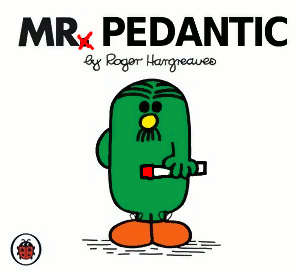Paul Whybrow
Full Member
I've noticed an irritating trend in publishing, for short books to be called 'novels'. This rather contradicts pronouncements that the shorter forms such as flash fiction and novellas are making a comeback, partly because of limited attention spans and also because of how people read these days, using smartphones and tablet computers.
The word count of a book is relevant for all sorts of reasons, including suggesting the quality of the writing, retail price and the cost of printing or translating it. Novelist Jane Smiley reckons that a novel should be between 100,000 and 175,000 words. In writing a debut novel we're advised to stick to word counts for genres, with 80,000 words being ideal for crime/thrillers and a bit more than this for sci-fi/fantasy, while romances/erotica tend to be shorter.
There are no hard and fast rules, but most agree with the categories devised by The Science Fiction and Fantasy Writers of America for its Nebula Award:
Novel: 40,000 words or over
Novella: 17,500 to 39,999 words
Novelette: 7,500 to 17,499 words
Short Story: under 7,500 words
The term 'novelette' appears to be extinct—I haven't seen it used for years, but it's reassuring to have some idea of established practice within publishing.
Recently, I read a highly-praised book that was described as a 'novel' on the jacket and in reviews by critics who should know better. The End We Start From, by Megan Hunter is a mere 140 widely spaced pages and is approximately 20,000 words long. I read it in a couple of hours.
The End We Start From: Amazon.co.uk: Megan Hunter: 9781509839100: Books
(Click on the Look inside tag to see the text)
I enjoyed the story, for Megan Hunter is a poet and she makes well-considered word choices. Then again, it also reads like the notes that I make when sketching out what to include in a chapter I'm about to begin writing. I didn't dislike it, and I understand its success for it's easy to consume making the reader do a lot of the work in imagining how they'd feel in such a dystopian situation, but it's by no stretch of the imagination a novel.
I know that short stories are being called 'novels' as a marketing ploy, but the imprecision and deceit annoy me.
If things carry on like this, it's only a matter of time before a flash fiction story of 250 words is called a 'novel'! We don't call a car a 'truck', a sandwich isn't a 'roast dinner' and a bun isn't a 'cake'. There are reasons why we have accurate descriptions based on size.
Am I being pedantic?
Are there any things that drive you nuts about publishing?

(not me!)
The word count of a book is relevant for all sorts of reasons, including suggesting the quality of the writing, retail price and the cost of printing or translating it. Novelist Jane Smiley reckons that a novel should be between 100,000 and 175,000 words. In writing a debut novel we're advised to stick to word counts for genres, with 80,000 words being ideal for crime/thrillers and a bit more than this for sci-fi/fantasy, while romances/erotica tend to be shorter.
There are no hard and fast rules, but most agree with the categories devised by The Science Fiction and Fantasy Writers of America for its Nebula Award:
Novel: 40,000 words or over
Novella: 17,500 to 39,999 words
Novelette: 7,500 to 17,499 words
Short Story: under 7,500 words
The term 'novelette' appears to be extinct—I haven't seen it used for years, but it's reassuring to have some idea of established practice within publishing.
Recently, I read a highly-praised book that was described as a 'novel' on the jacket and in reviews by critics who should know better. The End We Start From, by Megan Hunter is a mere 140 widely spaced pages and is approximately 20,000 words long. I read it in a couple of hours.
The End We Start From: Amazon.co.uk: Megan Hunter: 9781509839100: Books
(Click on the Look inside tag to see the text)
I enjoyed the story, for Megan Hunter is a poet and she makes well-considered word choices. Then again, it also reads like the notes that I make when sketching out what to include in a chapter I'm about to begin writing. I didn't dislike it, and I understand its success for it's easy to consume making the reader do a lot of the work in imagining how they'd feel in such a dystopian situation, but it's by no stretch of the imagination a novel.
I know that short stories are being called 'novels' as a marketing ploy, but the imprecision and deceit annoy me.
If things carry on like this, it's only a matter of time before a flash fiction story of 250 words is called a 'novel'! We don't call a car a 'truck', a sandwich isn't a 'roast dinner' and a bun isn't a 'cake'. There are reasons why we have accurate descriptions based on size.
Am I being pedantic?
Are there any things that drive you nuts about publishing?

(not me!)
